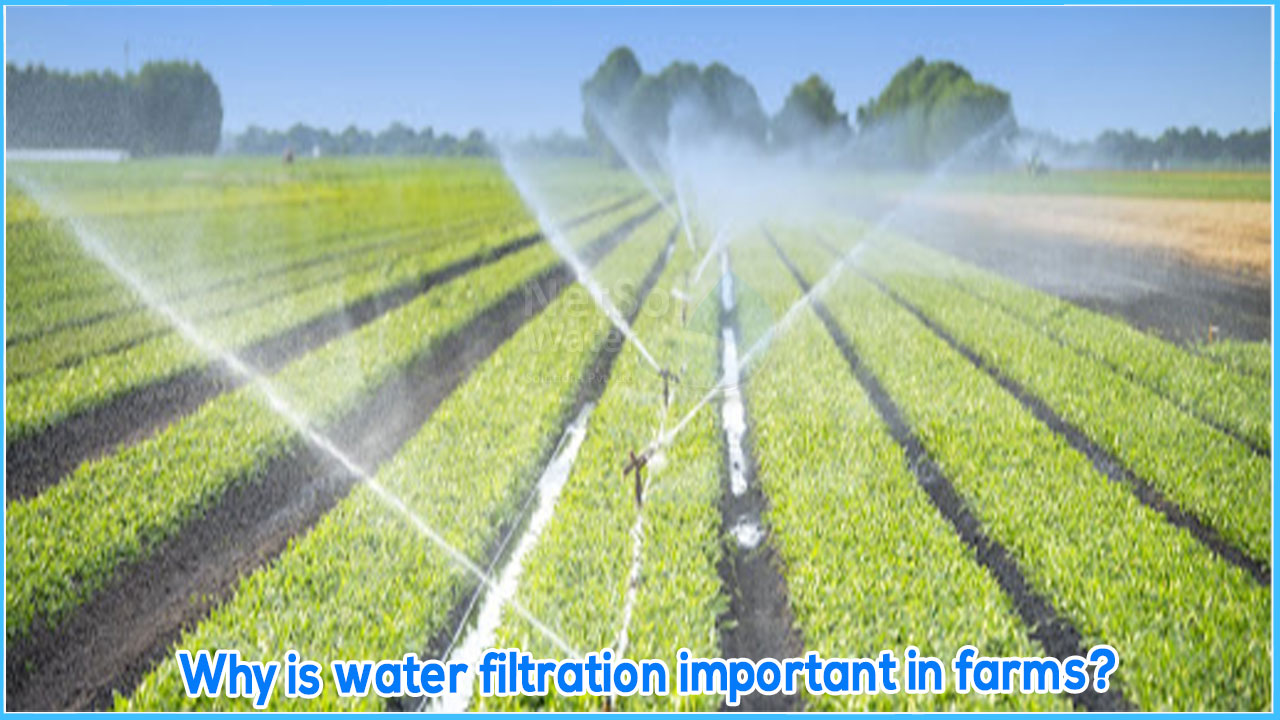A lot of water is used on farms. Water from the mains, streams, rivers, or ponds, or precipitation runoff are all possibilities. Water is utilized for a variety of purposes, including vegetable washing, irrigation, livestock watering, and cleaning dairy and pig units. Pumps and filters are unquestionably important pieces of equipment in modern farming.
The quality of water entering an agricultural area is critical to the success of the area. Water quality is frequently insufficient for agricultural purposes. High salt concentrations impair a plant's ability to absorb water, resulting in increased plant stress and lower food yields. Metal concentrations above a certain level have a deleterious impact on agricultural production.
Agricultural practices may have an adverse effect on water quality. Nutrient concentrations, faecal coliforms, and sediment burdens may be elevated as a result of poor farming practices. Increased nutrient loading from animal faeces can cause eutrophication of water bodies, which can harm aquatic ecosystems in the long run. Toxic faecal coliforms may also be introduced through animal excrement, posing a public health risk. Grazing and other agricultural operations may exacerbate erosion processes, resulting in increased sediment input into local water sources. Increased sediment burdens make treatment of drinking water more difficult, as well as having an impact on fish and macroinvertebrates.
IMPORTANCE OF WATER FILTRATION
Water quality is critical for agricultural success, and proper agriculture management methods are required to achieve domestic water quality standards and maintain ecosystem health. Agriculture and home water users must work together to provide appropriate water quality for both groups. So that is why water filtration is important.
Water filtration is the process of removing or reducing the concentration of particulate matter from contaminated water, such as suspended particles, parasites, bacteria, algae, viruses, and fungi, as well as other undesirable chemical and biological contaminants, to produce safe and clean water for a specific purpose, such as drinking, medical, farming, and pharmaceutical applications.
Clean Water will be required to clean the living quarters of various animals and birds. A poultry farm, for example, sees a lot of waste produced by the chickens. To clean the area, a large amount of water is required. If the water utilized contains contaminants, sediments may accumulate along the margins, posing a health risk to the farm's animals and birds. Water is also required by dairy farms for the chilling of milk. To ensure that the milk cooling process is not hampered, this water must be treated for all chemicals. Only by implementing high-quality water filter systems in dairy and poultry farms can this goal be achieved.
Pumps, motors, filters, and pipes on farms will be harmed by the poor water quality. Because of the constant accumulation of sediments and pollutants in their various parts, their performance may be harmed, and their lifespan would be severely reduced. A farm water filtration system will ensure that the effectiveness of the various sections of the agricultural equipment is not harmed. The life of farm machinery will be extended by clear running water that is free of impurities. The farmer will have to spend less time dismantling the various sections of the machinery in order to get it back in working order. This has a significant impact on the farmer's production.
Considering all these factors, it is recommended to use Netsol Water treatment systems to safeguard both health and environment.




